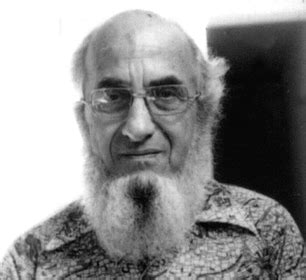A Quote by Blaise Pascal
Those whom we call ancient were really new in all things, and properly constituted the infancy of mankind.
Related Quotes
The books I made, most of those books were made in the '80s or early '90s. I was reacting emotionally at that time; it wasn't an intellectual thing. I didn't make those things for public presentation; those were for my friends. So I wasn't doing this to be an advocate for what I'm talking about right about now. But I'm realizing I was working properly as an artist, or whatever you want to call it, as somebody that naturally was inquisitive.
Divine Scripture is wont to frame, as it were, allurements for children from the things which are found in the creature; whereby, according to their measure, and as it were by steps, the affections of the weak may be moved to seek those things that are above, and to leave those things that are below. But the same Scripture rarely employs those things which are spoken properly of God, and are not found in any creature; as, for instance, that which was said to Moses, I am that I am; and, I Am has sent me to you."
The Auschwitz praxis was based on a new principle: for one portion of mankind, existence itself is a crime, punishable by humiliation, torture, and death. And the new world produced by this praxis included two kinds of inhabitants, those who were given the "punishment" and those who administered it.
Some things mankind can finish and be done with, but not ... science, that persists, and changes from ancient Chaldeans studying the stars to a new telescope with a 200-inch reflector and beyond; not religion, that persists, and changes from old credulities and world views to new thoughts of God and larger apprehensions of his meaning.
When a librarian really believes that a book is harmful, that its content is contrary to the welfare of the community, or that it is destructive of good taste, even if those are his opinions only, he has not only the right, but also the obligation to do what he properly can to keep that book out of the hand of those whom he thinks might be injured by it.
It is no wonder you are tempted; on the contrary, it would be something new if you were not, because man's life is nothing but temptation, and no one is exempt from it, especially those who have given themselves to God; his own Son even passed through this trial. But if it is necessary for everyone, it is also a source of merit for those to whom God grants the grace of turning all things to good, as you do.
Let us enquire. Who, then, shall challenge the words? Why are they challenged. And by whom? By those who call themselves the guardians of morality, and who are the constituted guardians of religion. Enquiry, it seems, suits not them. They have drawn the line, beyond which human reason shall not pass -- above which human virtue shall not aspire! All that is without their faith or above their rule, is immorality, is atheism, is -- I know not what.
There is always something to do. There are hungry people to feed, naked people to clothe, sick people to comfort and make well. And while I don't expect you to save the world I do think it's not asking too much for you to love those with whom you sleep, share the happiness of those whom you call friend, engage those among you who are visionary and remove from your life those who offer you depression, despair and disrespect.
The words 'theory' and 'practice' are of Greek origin; they carry our thoughts back to the ancient philosophers by whom they were contrived, and by whom they were also contrasted and placed in opposition, as denoting two mutually conflicting and mutually inconsistent ideas. ... [this fallacy] based on a double system of natural laws retarded for centuries the development of physical science, notably mechanics.









































